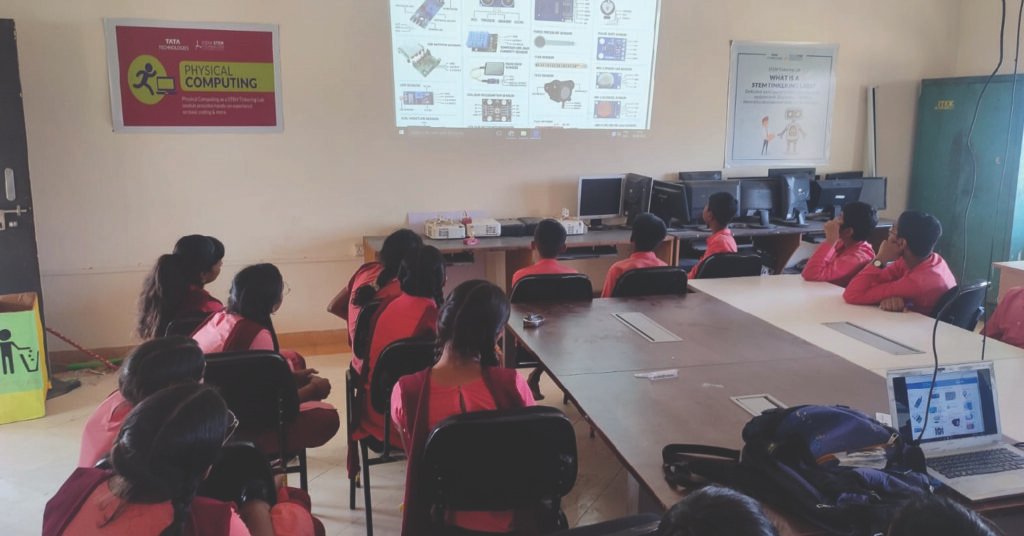Early to STEM, Early to foster Critical thinking, creative thinking and problem solving brain development, in the increasing tech-driven world. Early STEM (science, technology, engineering, and mathematics) education is crucial for children to learn in today’s world of rapid advancement. Early exposure to STEM subjects builds the groundwork for the development of diverse skill sets and prepares children for a future in which creativity and problem-solving are essential.
Developing Curiosity and Exploration:
Children who are exposed to STEM subjects at a young age are more likely to be curious and want to learn more about their surroundings. Their natural curiosity is piqued by practical exercises, experiments, and interactive educational opportunities, which foster a lifetime love of learning and exploration.
Developing Basic Skills:
Early STEM education helps children develop basic abilities including problem-solving, logical reasoning, and critical thinking. Children gain valuable life skills via interesting activities, such as scenario analysis, problem solving, and thinking adaptability.
Fostering Innovation and Creativity:
Exposure to STEM subjects encourages kids to think creatively and unconventionally. Children learn to invent by doing basic experiments or building structures out of building blocks, which encourages an atmosphere where creativity flourishes.
Getting Ready for a Tech-Driven Society:
Early STEM exposure gives kids the technical literacy they need in a world where technology rules. Understanding the fundamentals of coding or how machines operate paves the way for future digital proficiency and flexibility.
Advantages of stem education
Acquiring Crucial Skills: Critical thinking, problem-solving, teamwork, and communication skills are all inherently integrated with STEM. Children hone these soft skills via experimentation, readying them for problems in the future.
Language Expansion: STEM education broadens children’s vocabulary and introduces them to STEM concepts at a young age. This promotes greater understanding as things get more complicated and helps with comprehension in advanced maths and science.
Establishing a solid foundation for maths and science is achieved by introducing STEM subjects early on. It lays down the foundation for success, preventing overload in subsequent grades.
Retaining Interest in Learning: STEM courses battle students’ apathy in traditional lecture-style instruction by keeping them engaged through hands-on learning. Children who are exposed to this dynamic learning early on develop a liking for it and stay enthusiastic about learning and school.
Real-World Connections: STEM activities help students better comprehend the world around them by tying theoretical ideas to practical applications. This hands-on method makes STEM subjects easier to understand and more applicable to everyday life.
Encouraging Inclusivity and Equal Opportunities:
Early STEM exposure dismantles obstacles related to gender and diversity. It encourages inclusion by guaranteeing that every kid has an equal chance to pursue and succeed in STEM subjects, opening the door for a future workforce that is more varied and egalitarian.
Promoting Resilience and Adaptability:
Trial and error is a common part of STEM activity. Kids discover that making errors is a necessary part of learning, which develops resilience and adaptability—qualities that are important in STEM fields as well as in overcoming obstacles in life.
Establishing the Groundwork for Future Careers:
Early STEM exposure prepares students for a variety of future job options. It sparks children’s enthusiasm in pursuing careers in science, engineering, technology, and mathematics by introducing them to these subjects.
In summary,
early STEM exposure fosters diverse abilities, an inquisitive attitude, and flexibility in addition to preparing future scientists and engineers. Early STEM exposure prepares children for a better, more inventive future by encouraging curiosity, critical thinking, and technical literacy. This helps children become lifelong learners and problem solvers. To make sure the next generation is prepared to prosper in a world that is changing quickly, it is imperative that we invest in them.




